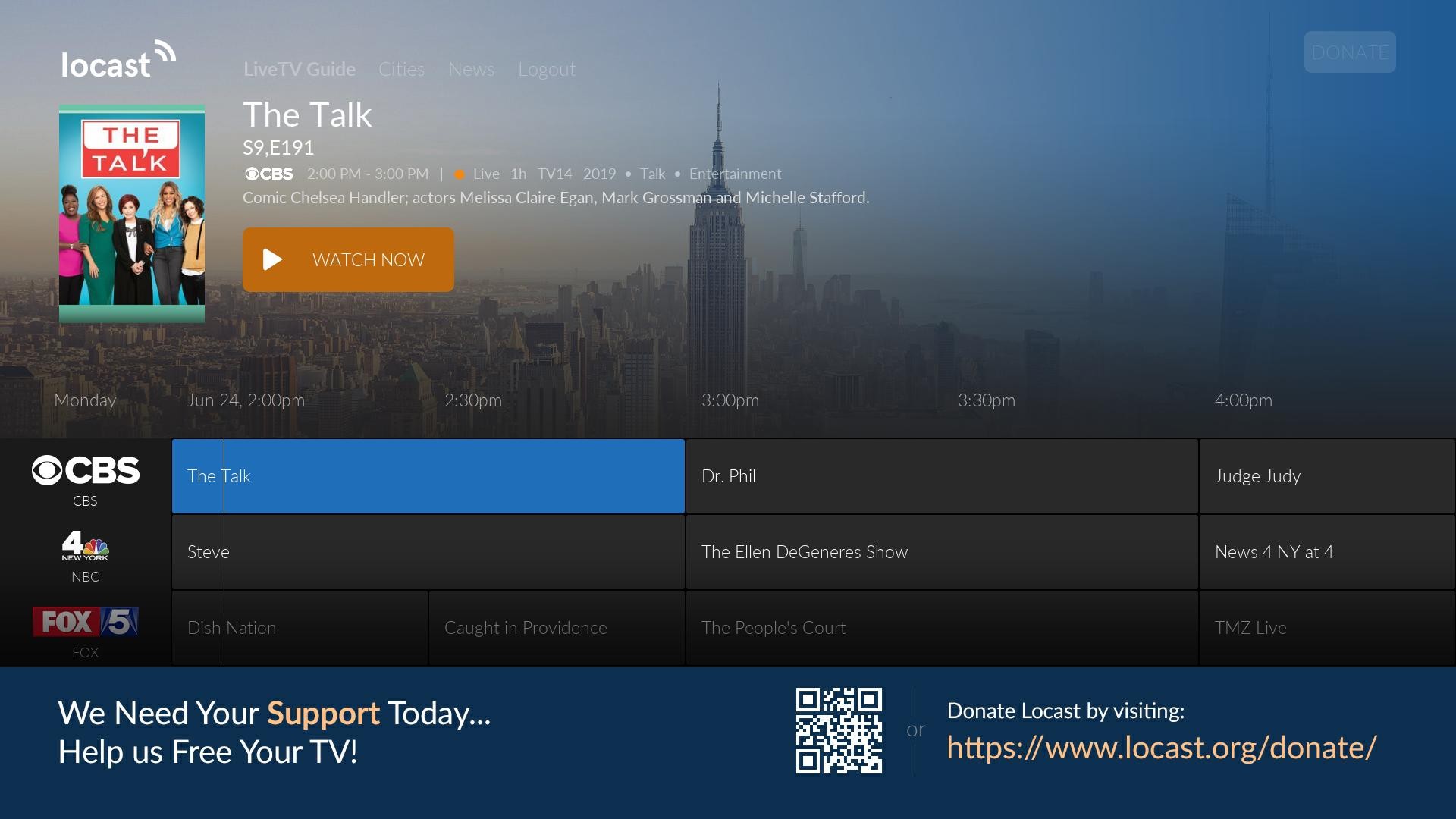
After more than 40 years of operation, DTVE is closing its doors and our website will no longer be updated daily. Thank you for all of your support.
Big four American networks sue Locast
 ABC, CBS, NBC and Fox have filed a lawsuit against Locast.
ABC, CBS, NBC and Fox have filed a lawsuit against Locast.
Locast, founded by former DISH executive David Goodfriend, is a relatively new service that attempts to fill the gap for cord-cutters, offering access to local stations over the internet for 17 markets. The platform uses geolocation to ensure that viewers can only view stations inside their designated market area. It is accessible via desktop, Roku and Amazon devices, and apps for Android and iOS. Locast is free to use, but encourages donations.
The networks, whose stations are viewable through Locast, allege a breach of copyright in retransmitting their free over-the-air signals.
Locast has reportedly received a donation of US$500,000 from AT&T, which is currently in the midst of a carriage dispute with CBS. AT&T has even integrated Locast into its AT&T Now (formerly DirecTV Now) and U-verse platforms.
A statement from Locast said: “Locast is an independent, non-profit organisation that provides a public service retransmitting free over-the-air broadcasts. Its activities are expressly permitted under the Copyright Act. The fact that no broadcasters have previously filed suit for more than a year and a half suggests that they recognise this. We look forward to defending the claims – and the public’s right to receive transmissions broadcast over the airwaves – in the litigation.”
Despite the company’s claims of it not being run for profit, the lawsuit alleges otherwise: “Locast not only is securing important commercial advantages for itself, in forms including nationwide distribution of its application and valuable viewer data, but it is also operating in collaboration with, and for the commercial benefit of, two companies that are among the largest pay-TV distributors in the country.”
The lawsuit also compares Locast to Aero, the subscription service that offered a similar level of access and was taken to the Supreme Court by the networks. Aero was found to be similar to a cable television provider and put out of business, selling its assets to TiVo.
The suit continues: “Locast is simply Aereo 2.0, a business built on illegally using broadcaster content. While it pretends to be a public service without any commercial purpose, Locast’s marketing and deep connections to AT&T and Dish make clear that it exists to serve its pay-tv patrons.”
“Locast is nothing like the local booster services contemplated by Congress in creating this narrow exemption,” states the complaint filed in New York federal court. “Locast is not a public service devoted to viewers whose reception is affected by tall buildings. Nor is Locast acting for the benefit of consumers who, according to Locast when promoting its purportedly free service, ‘pay too much.’ Locast is not the Robin Hood of television; instead, Locast’s founding, funding, and operations reveal its decidedly commercial purposes.”


